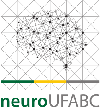Banca de QUALIFICAÇÃO: MARCEL VALÉRIO DE ARRUDA
Uma banca de QUALIFICAÇÃO de MESTRADO foi cadastrada pelo programa.
STUDENT : MARCEL VALÉRIO DE ARRUDA
DATE: 29/09/2022
TIME: 16:00
LOCAL: UFABC Virtual - https://conferenciaweb.rnp.br/webconf/ruth-2
TITLE:
Effects of Music on Neuropsychiatric Aspects, Cortisol and Blood
PAGES: 129
BIG AREA: Outra
AREA: Multidisciplinar
SUMMARY:
I
Music has different effects on the biological parameters of circulation and the nervous system, and music can alter the physiological parameters of somatic functions. Changes in brain blood flow are related to changes in brain metabolism due to brain activation. Growing evidence suggests that stimulating mental, physical, and social activities are beneficial in counteracting declines in cognition. Cortisol levels respond to social, psychological, acute and chronic stress. In biological aspects, stressful events provoke several reactions involving the Hypothalamus-Pituitary-Adrenal (HPA) axis, where there is production and release of adrenocorticotropic hormone (ACTH) and corticoids (cortisol) in the bloodstream. Psychological stress has been linked to higher levels of oxidative damage and studies have suggested that oxidative stress can trigger neuropsychological disorders. The accumulation of oxidative damage over time causes cellular aging and contributes to the onset of disease. This implies that it may be possible to delay physical and cognitive decline by mitigating oxidative damage. Oxidative damage is caused by reactive oxygen species not mitigated by antioxidants, so free radicals can lead to hemorheological abnormalities, reducing the supply of oxygen and nutrients, and decreasing blood circulation. Blood viscosity is one of the factors that affect brain blood flow and cognitive function, so high blood viscosity is an important factor in cognition to be investigated. This regulation of brain blood flow is associated with brain metabolism, therefore, it plays an important role in the preservation of cognitive function. The present project aims to evaluate whether regular musical practice provides a reduction in the level of stress, evaluated through the depression, anxiety and stress scale (DASS-21) and through the evaluation of blood cortisol and ACTH, and better performance in tests and cognitive scales of young people aged 20 to 30 years. In addition to evaluating whether regular musical practice, in the form of musical initiation, provides regulation of hemorheological parameters, through the assessment of pre- and post-intervention blood viscosity. The measurements of the assessment instruments will be obtained pre and post-intervention, as well as the assessment of blood viscosity. The intervention will take place weekly, totaling 12 weeks, the intervention will consist of a musical initiation including twelve one-hour lessons. During classes 5-12 participants will participate in active practices. To date, baseline data have been analyzed. In the remote collection, there was a significant difference in the Frontal Assessment Battery between participants who had COVID-19 and participants who were not infected. The strongest Pearson correlation observed was the correlation (r = 0.912, p < 0.01) between the total PSQI score and the Differential Threshold, in the face-to-face collection. And evaluating all the data together, there was a significant difference between participants, who had COVID-19 and participants who were not infected, in the Differential Threshold (t = -2.412, p = 0.0267).
BANKING MEMBERS:
Presidente - Interno ao Programa - 1714632 - PETER MAURICE ERNA CLAESSENS
Membro Titular - Examinador(a) Interno ao Programa - 1955999 - ANDRE MASCIOLI CRAVO
Membro Titular - Examinador(a) Externo à Instituição - CAMILA CRUZ RODRIGUES - UPM
Membro Suplente - Examinador(a) Interno ao Programa - 2141126 - PATRICIA MARIA VANZELLA
Membro Suplente - Examinador(a) Interno ao Programa - 1672975 - JOAO RICARDO SATO




